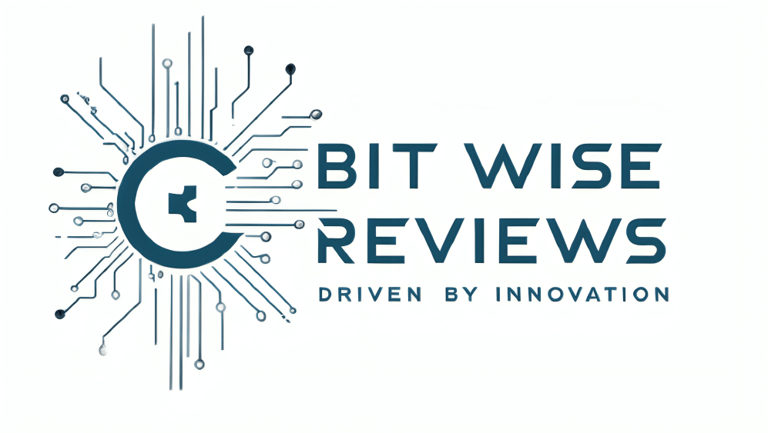Artificial Intelligence in the Real World: 7 Ways AI will Transform Your Life in 2025.
BIT WISE REVIEWS
9/25/2025
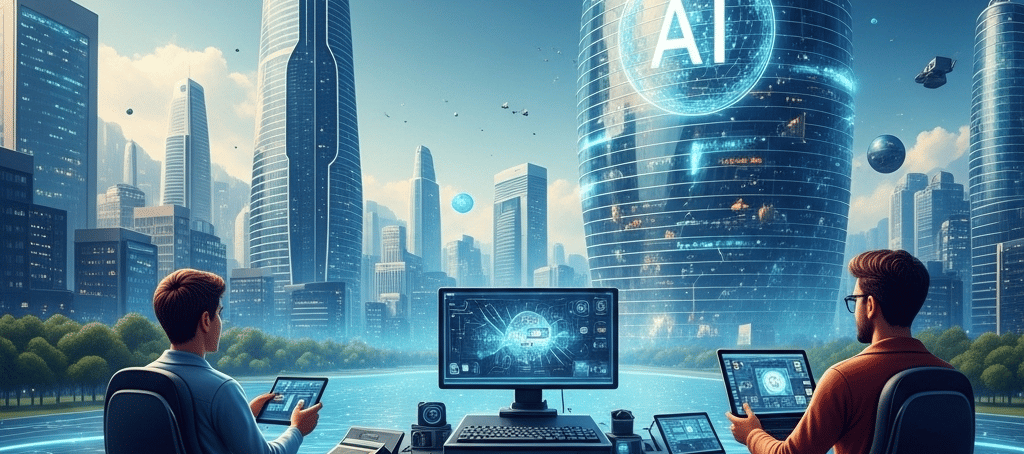

Imagine a world that thinks in advance what you want, your education is customised, and all the daily activities are easily done without strain. It does not constitute science fiction, but it is the reality of AI in our daily lives in the year 2025. It has become an integral part of our lives, and Artificial Intelligence, which at first, only appeared in films and the work of scientists and researchers, nowadays, has found its way into reality. The AI is silently working in the background since the moment you wake up to the time you go to sleep, improving your life by being smarter, more efficient, and in many cases, more enjoyable.
This guide can be used to discuss seven major ways AI is changing your everyday life today, and how the AI in technology is not necessarily a fad, but a complete paradigm shift in how we relate to the world. Whether you are an AI learner and gadget enthusiast, a tech-focused reader, or simply an interested beginner in AI, you are ready to experience the unbelievable influence of AI on your daily life.
Key Takeaways
Smart Living is Here: AI-based virtual assistants and smart home features are transforming our homes into being more intelligent and aware of our needs.
Customised Experiences All Over: You, online shopping, and the entertainment you watch, AI serves you with content and products that match your preferences.
The AI Revolutionizes health: Smartwears and Improved diagnostics employ AI to keep track of our health and help in new discoveries in medicine.
Learning is being smartened: AI is changing the education experience with customized courses, interactive tutors, and novel student interactions.
Coding and Work Supercharged: AI is being used to enhance productivity in every industry, including writing as well as intricate coding projects.
Travel & Navigation Made Easy: AI maximizes the routes, forecasts the traffic, and is establishing the basis of safer and more effective transportation.
Improved Security and Safety: AI can play a very important role in securing our physical and digital space by detecting and preventing similar threats.
1. Smart Assistants and Home Automation: Your Smart Co-Pilot 🏡
In 2025, the concept of speaking to your home is no longer an insight, but it is anticipated. Amazon Alexa, Google Assistant, and Siri, a virtual assistant, have become the new components of millions of families. These smart assistants are more than alarm clocks or music players; they control entire smart homes.
Here is the scenario: you get up, then your smart blinds open, and the coffee maker begins to make coffee. The temperature is already set to your desired level by your smart thermostat. All day long, you have your assistant who constantly reminds you about appointments, orders groceries, and even reads the news. Such a form of integration can be pre-eminent of AI in everyday life, and routine activities become blissful.
How AI Makes it Smart:
Natural Language Processing (NLP): AI can read your spoken words, regardless of their accents and sentence construction.
Machine Learning (ML): As you listen, it gets to know what music you like and your routine, and even your mood, to give more relevant recommendations to you.
Contextual Awareness: Smart assistants have the ability to reason about what you are asking of them based on context, so that they can know whether you are asking about today's weather or if you need to make plans to go somewhere next week.
🗣️ Pull Quote: Smart assistants will be able to answer questions in 2025, but more importantly, they will be able to foresee needs and convert houses into truly smart homes.
In addition to voice commands, AI is revolutionising the Goodman jobs. Think about robots that would vacuum and mop, and even do the laundry with minimal human supervision. Indeed, these AI-powered home robots are revolutionising home duties, leaving families with enough free time. The world of an automated home is not as far away as it may seem, as it will run on advanced algorithms of AI.
The major advantages of artificial intelligence in home automation are:
Convenience: Drives routine work, which is time-and effort-saving.
Efficiency: Makes the most out of energy by using smart thermostats and smart lighting.
Accessibility: Supplies service to persons with mobility impairment.
Security: Comes with smart cameras and doorbells to monitor the home better.
2. Customised Recommendations and Entertainment: Your Personal World 🎬🛍️
Have you ever been left asking yourself how Netflix can be so sure of what show you will love next, or how Amazon can be so ready with the product you actually need? That is the work of AI, creating a very personalised experience, just for you. It is one more effective example of AI in the real world that helps to unknowingly direct your decision-making in entertainment, purchasing, and even social media.
Spotify or Netflix are streaming services that require complicated AI rules to examine your viewing and listening behaviours. They look at what you have seen, the duration of time you have seen it, what you have bypassed, and even what time of the day you are watching things. With this information, they can make suggestions on what you would like to watch next, and they usually present you with something new that you would not have known about otherwise.
In the same way, online stores use AI to customise your online shopping. Whether it is the recommendations of products depending on your browsing history and previous purchases, or how the prices are dynamically changed, it is possible with AI to make your online storefront unique to you. Another extensive use of AI in social media feeds is that the feeds prefer content that the AI thinks you will be most likely to view, based on your behaviour.
The future of AI: Discovering your experience:
Collaborative Filtering: Recommendations are based on the likes of other similar users.
Content-Based Filtering: Recommends similar items to things that you have previously liked.
Deep learning: It is used to analyze large volumes of data to detect unobvious patterns and preferences.
Fun Fact: AI-driven recommendation engines. The quality of the AI-driven recommendation engines is so effective that it is to blame for most of the content consumption on major platforms!
Read more: Samsung AR Glasses: Redefining Everyday Life Through Augmented Reality
3. Transforming Healthcare & Wellness: Living a Healthier You in 2025 bear
AI is realizing amazing advances in the field of healthcare, not just in the field of administration, but in direct influence on diagnostics, treatment, and individual health. It is in this area that AI in technology really comes in and presents future hope with the capability to detect diseases earlier, more effectively treat, and manage health activities actively.
In 2025, AI helps doctors to analyse medical images such as X-rays and MRIs, and in many cases, they notice the slightest anomaly that the human eye can detect. The result of this is an earlier and more precise diagnosis of such a condition as cancer or a neurological disorder. Moreover, AI is speeding up the discovery of drug simulations of molecular interactions, which is significantly reducing the time to introduce new medicines to the market.
At the individual level, wearable technology combined with AI is enabling people to have control over their health. Such equipment as smartwatches constantly check vital signs and sleep quality, and identify abnormalities that signal users and even physicians about possible complications. An example is the features of gadgets such as the Google Pixel Watch 4, which are redefining the future of wearable devices, providing complex health tracking and information. This proactive tracking enables early intervention and healthy lifestyles.
AI's Impact on Healthcare:
Diagnostics: Help to detect diseases at the initial stage.
Drug Discovery: Accelerating new drugs.
Personalized Medicine: The ability to individualize treatment depending on a genetic composition and health information.
Predictive Analytics: In-the-middle predictions in order to forecast outbreaks and people at risk.
🌟 Pull Quote: "AI is not merely an instrument used in the healthcare system, but a companion; it will be alongside medical workers to save lives and improve well-being in 2025
4. The smarter Education and Learning: personalised Knowledge to everybody 🎓📚
With the help of AI, the classroom of the future, 2025, will be different. Education Applications of AI in education are changing the way we learn and teach, making it more accessible, personalized, and engaging more than ever. It is making students understand difficult issues, and teachers present more effective classes.
The AI-based learning platforms will be able to adapt to the needs of individual students and recognise strengths and weaknesses, and hence create content and exercises that meet their needs. This implies that a student who does not master algebra could be given additional problems, and another student who is good at history could be given further challenges. AI tutors are able to offer instant feedback, 24/7 answers, and assist students in learning problematic areas at their own pace.
Moreover, AI is helping teachers to complete the more administrative side of their work, such as multiple-choice quiz grading or plagiarism detection, and allowing them to spend more time engaging with students directly and on curriculum creation. The education process can also be made more interesting with the help of AI, which can be employed in the creation of engaging and interactive learning materials. The technological progress is also transferred to the sphere of communication with the digital content, and such technological achievements as augmented and virtual reality (AR/VR) provide us with the opportunities to immerse ourselves in the learning process and do the things that seemed impossible just a year ago.
How AI Enhances Learning:
Individualised Learning: changing the content and the pace to suit the needs of a student individually.
Intelligent Tutoring System: This concept will offer on-demand help and tailored feedback.
Automated exam: Minimising grading and detecting learning areas.
Creation of the Content: Interactive quizzes, summaries, and learning modules.
Read more: Modular Flying Cars and Their Potential for Urban Transportation
5. Increasing Productivity at the Workplace (and Coding!): Your AI Co-Worker 💼💻
The AI is not just a future idea in the professional world of 2025: it is an effective colleague, increasing the efficiency of virtually any industry. This is more so with AI in coding and other technical components, whereby AI technologies are transforming the way we innovate, create, and analyze.
To writers, marketers, and content creators, AI-based writing assistants are able to create drafts, summarise long files, optimise texts for search engines, and more. This enhances the speedy generation of content and consistency. The data analysts apply AI to analyse large volumes of data, discovering insights and trends that would otherwise require weeks or months to be discovered by humans.
AI in coding is, perhaps, one of the most exciting fields. AI tools are being used by developers not only to autocomplete code and identify bugs but also to produce complete pieces of code when given a natural language query. This not only speeds up the process of development but also assists in the minimization of errors and enables developers to work on more intricate and innovative problem-solving. Regardless of whether you are on an underperforming laptop or a creative workstation, AI tools are becoming part of the software and operating systems you use every day.
The application of AI in work-related productivity:
Automation: Processing of repetitive and mundane processes.
Data Analysis: Deriving meaningful results out of big data.
Creation of content: Writing and design-coding assistance.
Team Building Tools: Improving collaboration and management.
🚀 Pull Quote: "AI is not coming to take away the human ingenuity in 2025, but it is going to increase it, enabling professionals to do more, quicker, and much more precisely, particularly in code writing.
6. Better Transportation and Navigation: Smarter Journeys
It is smarter, safer, and more efficient to get from point A to point B in 2025, with the help of AI. This feature of AI in everyday life is less stressful when it comes to our daily commutes and has brought about groundbreaking ways of travelling.
Your AI-powered navigation application does not simply display the shortest possible route to you; it analyses traffic trends using real-time data, past data, and even local events. It is even able to hint at alternative routes, approximate the arrival time with incredible precision, and even locate parking spaces. Ride-sharing services apply AI in maximizing the driver pathways, finding an effective fit of passengers, and dynamically raising or lowering prices.
In autonomous cars, however, the most radical change is occurring. Although full-fledged self-driving cars are yet to be developed to suit everybody, AI has already made cars safer by enabling them to have adaptive cruise control, lane-keeping assistance, and automatic emergency braking. These systems have sensors, cameras, and AI algorithms to sense the surrounding environment and react quickly than a human being, thus cutting down the number of accidents. These AI-supported navigation and communication systems in our cars are further advanced and integrated in a continuous manner with the ever-evolving technology, so that in 2025, we will have foldable smartphones as one of the devices that will be incorporated into our cars.
The benefits of AI in the field of transportation include:
Prediction of Traffic: Prediction of traffic in real-time to prevent congestion.
Route Optimization: The discovery of the fastest and most optimal routes.
Autonomous Driving: Improving car safety and the future of self-driving vehicles.
Public Transit Management: Scheduling and traffic control.
7. Sophisticated Security and Safety: Keeping What is Personal to Pay 🛡️ 🚨
AI is our silent saviour in a world where everyone is getting more connected, and we are working relentlessly to have their help keep our cyberspace and real world safer and more secure. This is a very important use of AI in technology that can help us secure our data, our finances, and even our houses.
On the internet, AI-powered systems are in a constant struggle against cyber threats. They identify red-flagged logins, phishing emails, and block malware before it can cause an issue. AI will be able to identify the patterns of normal behaviour, which will help in identifying fraudulent activities within a short time and securing your bank accounts and personal information.
Surveillance is being revolutionised by AI in the physical world. Although facial recognition technology presents some privacy issues that should be taken into account, it is applied in secured premises to control access, as well as determine missing individuals. Video analytics with AI can identify abnormal activity within the open areas or track any possible security violations in real-time, notifying the police force significantly quicker than conventional means. At our homes, smart security cameras can distinguish between pets and intruders with the help of AI, thereby minimising false alarms.
How AI Boosts Security:
Cybersecurity: The identification and mitigation of malware, phishing, and fraud.
Physical Security: Facial recognition, surveillance in a surveillance.
Fraud Detection: Detection of abnormal financial transactions.
Predictive Policing: It means analysing data to predict and prevent crime (with ethical implications).
Pull Quote: AI offers an invaluable level of security in 2025, securing our lives on the web and increasing our physical security with smart and proactive systems.
The Future is Now: AI is the Future
Artificial Intelligence is not a buzzword, as we have discussed; it is a core technology that has radically changed our lives in 2025. AI is everywhere, whether it is the clever items in our houses or the complex systems controlling our health, education, work, and safety. It is simplifying our lives, making them easier, efficient, and personal.
The use of AI in everyday life is just bound to increase. With the further development of AI models and their popularity, more varied applications will gain popularity. Ethical implications of AI, including privacy, bias, job displacement, etc., are significant debates. Nonetheless, there is one aspect that is evident, and that is AI is the future, and its further development is sure to bring new opportunities that we can just start to envision. The adoption of the technology, its knowledge, and the responsible development of this technology will go a long way in ensuring that its potential is realised to have a smarter and brighter future.
Read more: Unlocking the Future: How AI Works In Technology, Finance, and Healthcare. Guide to AI in 2025
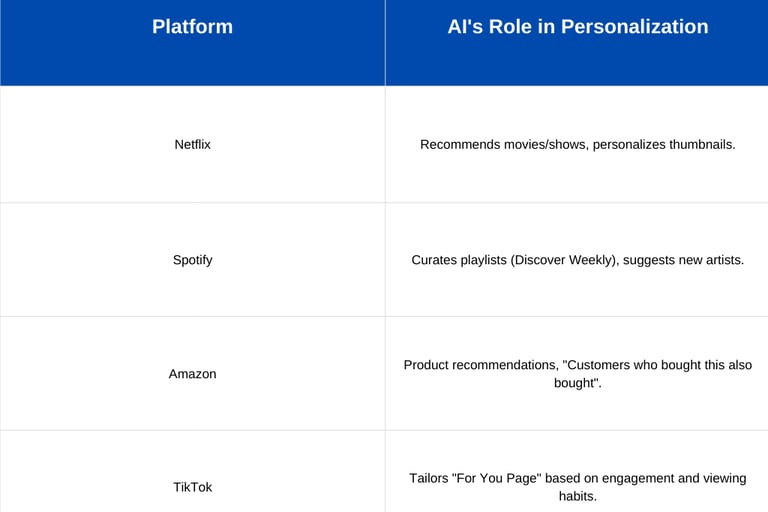

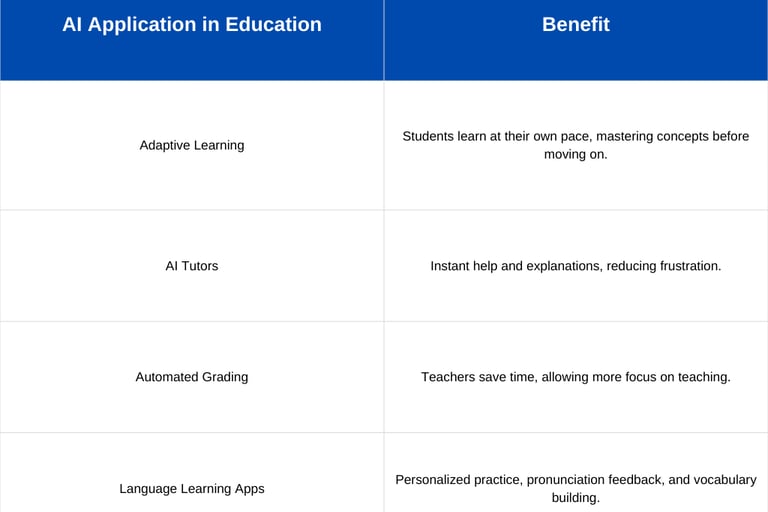

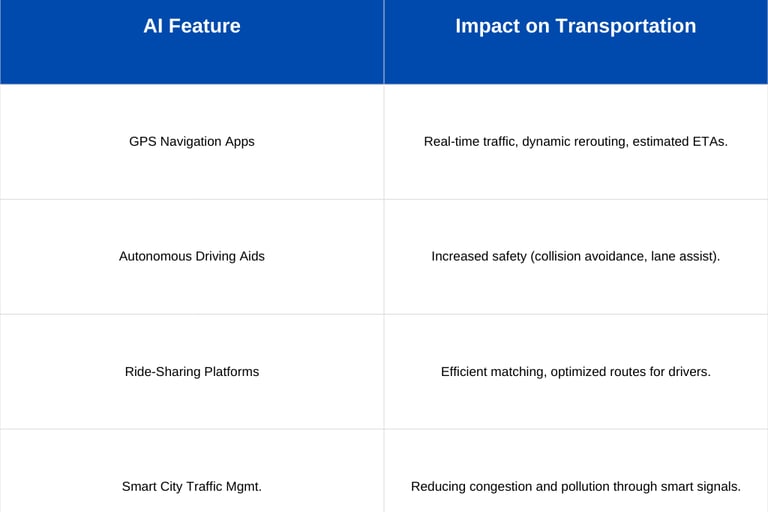

INSIGHTS
Your go-to source for latest tech gadgets news
Support
Connect
© 2025. Bit Wise Reviews
+91 8003144011
